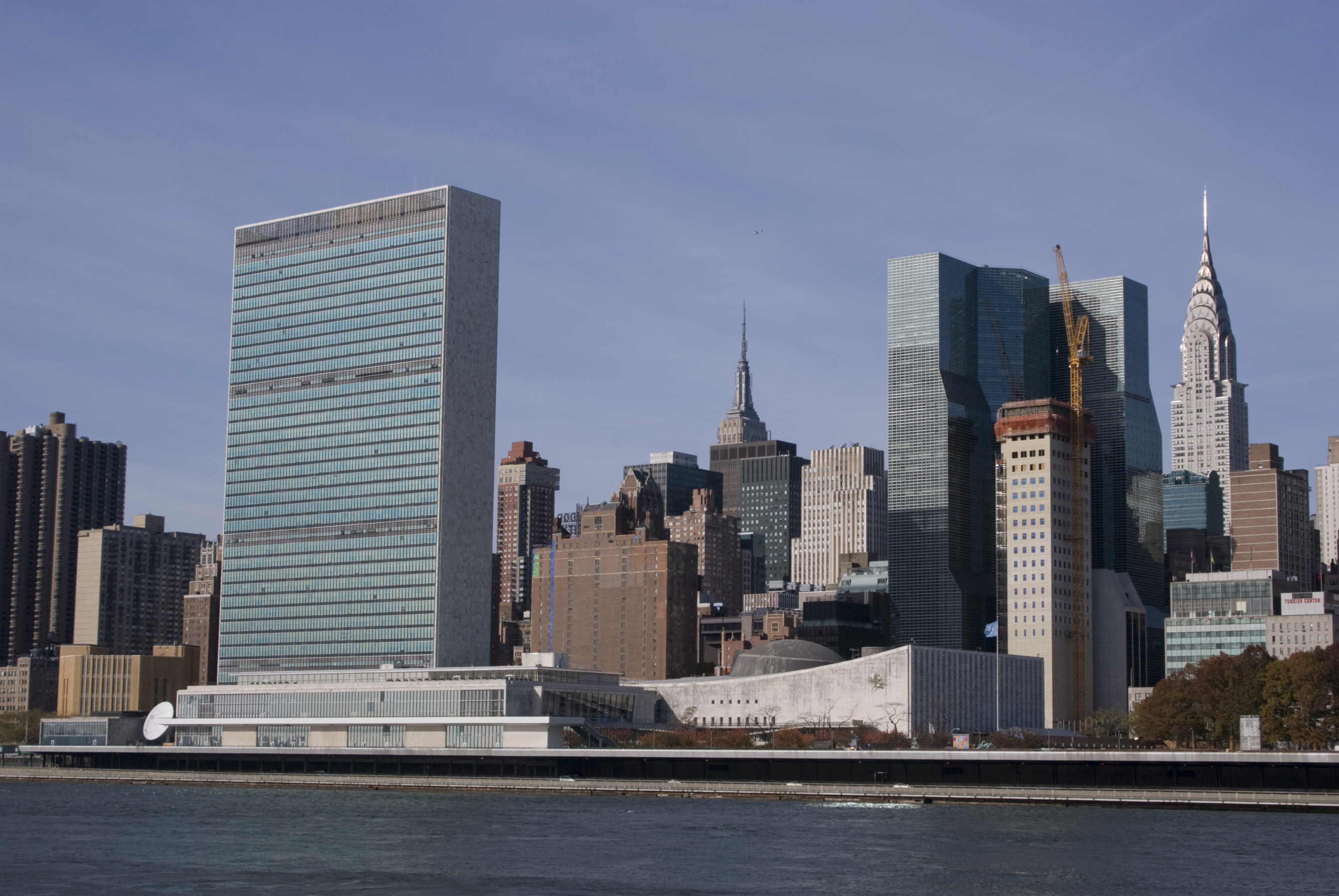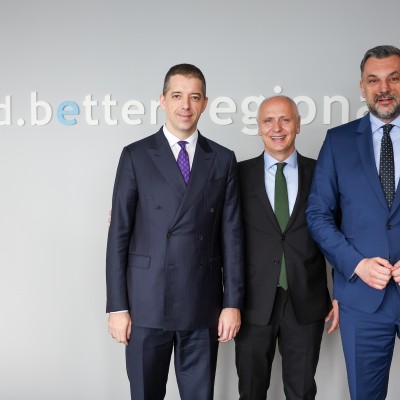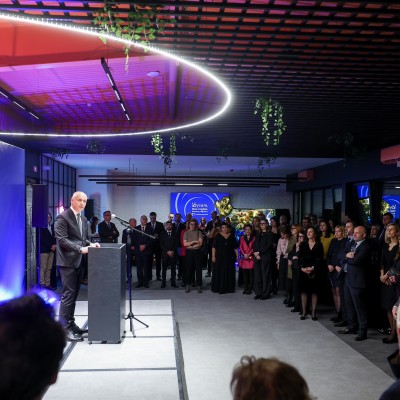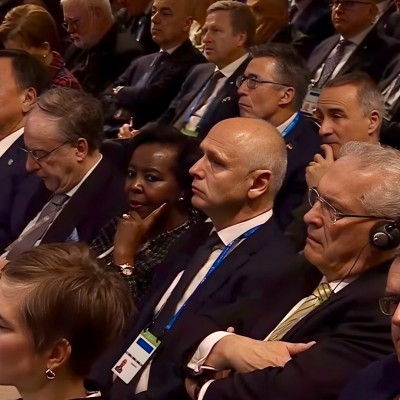Svilanovic: This might be ‘a make or break’ year for Regional Economic Area in the Western Balkans
25 September 2018

New York (Photo: www.humanrightsvoices.org)
RCC hosts meeting of Western Balkans foreign ministers and EU’s Han in New York
New York – The Regional Cooperation Council (RCC) hosted a working breakfast of the Western Balkans Foreign Ministers and the Commissioner for European Neighbourhood Policy and Enlargement Negotiations, Johannes Hahn, in New York today. This informal gathering was organised in the framework of the forthcoming Session of the United Nations’ (UN) General Assembly.
The meeting, which is a follow-up to the Sofia and London Summits held earlier this year, focused on the implementation results of the Multi-Annual Action Plan (MAP) for a Regional Economic Area (REA) in the Western Balkans Six, and future plans and challenges ahead of the region. In particular, the participants discussed the RCC’s activities related to MAP REA implementation as well as further actions that need to be taken by individual economies to speed-up the implementation process.
“A tremendous work has been done in the implementation of the MAP REA since its endorsement by Western Balkans’ leaders in Trieste last year, and I wish to congratulate you for dedicated work and efforts that your governments have made. However, the glass is only half full and there is still a lot of work ahead of us,” said RCC Secretary General, Goran Svilanovic, welcoming the region’s partners.
“This might be ‘a make or break’ year for MAP REA – the success can only be measured with concrete results, and to accomplish that we need to address the political challenges, truly mobilize the administrations, and improve domestic coordination, so that the political will expressed at the level of prime ministers is translated into swift actions. With clear demonstration of actual impact the MAP REA will become self-sustainable and really owned by the governments and its results benefit for the citizens. The RCC Secretariat, as always before, is here to support you all the way.”
Commissioner Hahn said that regional integration is a catalyst on each of the Western Balkans in its EU accession path, and creates growth and jobs for citizens. He added that the cooperation and connectivity had to become deeper-rooted and more effective, as the EU integration is about political focus and delivery to the people.
In the second year of the MAP REA implementation some tangible results have been achieved: reinvigorated intra-regional trade dynamics i.e. additional protocol on trade facilitation has been put in force along with the agreement to start negotiations on improving the trade dispute settlement mechanism; Regional Investment Reform Agenda (RIRA) was endorsed, defining joint priorities for capital markets development and major advancements in smart specialization; Digital Agenda for WB was launched and the first ever WB Digital Summit held; regional dialogue to continue both intra-WB and WB-EU roaming reduction processes and strengthened cooperation between cybersecurity authorities has been initiated; agreement to launch negotiations on Mutual Recognition Agreement on professional qualifications has been reached and Principles on recognition of academic qualifications endorsed.
Heading towards the 2019 Summit in Poland, the MAP REA implementation should be reinvigorated with more specific goals. The region should: continue towards the reduction of roaming charges in all WB6 and new/revised regional roaming agreement; complete negotiations on Mutual recognition of professional qualifications, and sign the agreement on it, as well agree on the model on recognition of Academic Qualifications; and initiate implementation of investment reforms in line with RIRA, with first targeted investment outreach activities carried out (including in tourism).
The leaders of Western Balkans Six (WB6) endorsed the MAP REA at the summit held on 12 July 2017 in Trieste. The MAP has been developed to enable unobstructed flow of goods, services, capital and highly skilled labour, making the region more attractive for investment and commerce, accelerating convergence with the EU thus bringing prosperity to Western Balkans citizens. The MAP REA actions are focused on: promotion of further trade integration; introduction of a dynamic regional investment space; facilitation of regional mobility; and creation of a digital integration agenda. The RCC has been tasked, together with CEFTA for the free trade area, to regularly inform the Berlin Process Summits on the progress achieved regarding the actions defined in the MAP.



